From Previous Issues
Although I hadn't planned to say that, I realized it was a first in American jurisprudence. Ordinarily, the more heinous a crime the more eagerly will a defendant take the oath. However, my refusal to swear on the Bible was a leap of faith. Everything was swirling around in pastel colors, but there was still a core of reality I was able to grasp, and somehow I managed to flash back to a civics class in junior high school when we had studied the Bill of Rights in general and the First Amendment in particular. Now I found myself passing that lesson on to Goofy. "I believe in the constitutional provision for the separation of church and state, so I will choose to affirm to tell the truth." Jason, look at this book, I say, The text is divided into seven parts, including "O Where Are They Now?" "Sports and Clubs," "A History of Our People" and, under "Homeroom," an old favorite from the late Richard Brautigan: Oh, Marcia, Playing with Gentle Glass Things Computer Magic Writing Letters to Those You Love Finding out about Fish Marcia's Long Blonde Beauty
It was called a World War, but that's typical Western arrogance. Almost half the world --- much of Africa and South America, even in the far reaches of the "belligerent" countries --- were not forced to participate in the general mayhem. I remember it as being a particularly pleasant time for me and my family.
The cats are kept in cages for observation. For instance, there's the matter of pet names. He called Laura his little plum, she called him her "Pillow Plumsicles." She wrote notes to him signed, "Your Tottle Bug." We used to thrash around like a couple of crazed weasels, he told Vanity Fair. He dubbed her "Ku Klux." Why? Because she is a wizard in the sheets. "Talk about gnashing your teeth; it was an actual snarl. She said, 'Don't you ever tell anyone I have psoriasis.' I said to Laura, 'If it weren't for your psoriasis you wouldn't have any character at all.'"
The big issue of the campaign before the RR&R gaffe was widespread belief that Grover Cleveland, the Democratic candidate, had fathered a child out of wedlock by a Maria Halpin. The author's conclusion: it might have been Cleveland with his finger in the pie, or --- as likely --- it might well have been some associates of his who he wanted to protect. In any event, he did the right thing, at least by the standards of the time: arranging for housing and shelter for mother and child.
No longer ago than last night he kissed two men in this city, and one of these two was a Democrat. It is thus seen that the habit is growing on him. So long as he confined this method to the Republicans the Sentinel did not complain, but he shall not play it on Democrats with our consent. And William Styron! Butter wouldn't melt in his mouth. One only has to read Darkness Visible, his account of his nervous breakdown, to see that he couldn't tell a neurosis from a tea-pot, and neither from reality.
The writing is filled with affection for the world of the Navajo and Native Americans in general. There is the truth of growing up in a family of alcoholics, suffering --- as Nasdijj does, as most of his young charges do -- with FAS (Fetal Alcohol Syndrome), a disease that slows down learning, creates frustration and violence, fomenting children who are difficult to care for. The book turns all the clichés that we have about Native Americans on their heads. Yes, Nasdijj shows us the drinking and car bodies on the lawns and shootings and knifings and thievery. But he also tells of the ceremonial life (still not lost) and delves into the grim history of the collision between the Spaniards and the Indians in the 16th and 17th Centuries, most especially the coming of Don Juan de Oñate. 300 years before King Leopold II devastated the Congo, 400 years before Bosnia's ethnic cleansing, Oñate indulged in the chopping off of hands and feet of innocent Indians, all done in the name of God's wrath as visited on the heathens. There is a statue of Oñate in Alcade, New Mexico. Nasdijj's friends Roy Laughter and Jimmy Dog decide one day to commemorate the rapine of Oñate by cutting off one of the feet of the statue. And they do.
Gentlemen: the people need our project. Their well-being, and the security of our whole movement, demand that we provide for their immediate needs. We must give the people of Belsen some pride. I ask that you vote favorably on the construction.
The events of Theo's life move the book, and move us. His sisters think their step-mother is a danger to their father, and the twist is that neither Theo nor the reader is quite sure if this is true or not. Theo fathered Natalia because Dr. Susan said he had "great genes" --- but it may have been that she said he looked "great in jeans." Susan goes bonkers, and drops his daughter off to stay with him even though he had understood he was just a turkey-baster father (he has never seen her before now). After being with Natalia for a few weeks --- weeks of her staring at the television and ignoring him are masterful presentations of a sullen, impossible five-year-old that one would love to strangle --- he wonders whether someone "switched cups" in the fertility clinic.
I tried to tell her about the Nazis, but nothing came out of my throat. She set the box on the edge of the bed and lifted the lid. Three huge black Norway rats scurried out of the box and slid to the floor, clutching at the sheet as they scrambled down... "How beautiful!" she crooned. "But whoever sent it didn't include any card." She peered into the box to make sure. "You must have a secret admirer! Well, I'll just leave it right here so you can see it." Knipfel takes time out in his story to give a fairly good disquisition on Lancan's theory of language and communication: to wit, since language is "the only thing we can use to represent ourselves to others," there will always be "miscommunication." And miscommunication comes close to being the theme of this wonderful story...that Knipfel has been miscommunicating with the world, and (mostly) with himself, all these years.
His characterizations have the delicacy and flavor of botulism on rye: Ernest Hemingway, for example, is "the bluff heavy-set titan of American letters." F. Scott Fitzgerald appears with "built-in class and style" and a "male-model look," Sinclair Lewis sported "an unpleasant skin ailment," and Beatrice Kaufman was "that bubbling, tawny-maned woman." What Marx obviously needs is an ego-trim, an honest editor and, perhaps, a scholarship to the Writer's Summer Workshop in lowa where he could work on his syntax, adjective phrases, and, if time, his soul. He makes light of the whoredom of great American literary figures by the Hollywood forcemeat establishment: the screen plays of William Faulkner, S. J. Perelman, Nathanael West, Clifford Odets,
Fitzgerald and Hemingway were trimmed so as to make the plots incomprehensible and the lines maudlin. Obviously, Marx sees his career as just another lark-filled time when the West Was Fun and Our Hearts were Young and Fey. It's an odd, a very odd way to get one's political thoughts heard, and Guiteau made it even more appalling by intoning such lines as "Life is a fleeting dream, and it matters little when one goes," and, "I presume the President is a Christian and that he will be happier in paradise than here," and, "I have no ill-will toward the President. His death is a political necessity."
The skin, as you know, is the largest organ in --- or about --- the body, and when it is attacked by what they call Scarcoptes Scabiei it goes nuts.
Scabies usually comes from what the manual so archly calls "skin-to-skin" contact --- in other words, from our doing those things that Granny advised us never to do with any other human. Scabies is thus another of God's mysterious ways of punishing us for our night-time pleasures and our secret daytime delights.
Scabies is known as "The Seven Year Itch," because its incidence rises and falls as regularly as the tides, or the sunspots, turning up in abundance every seven years. It is easily cured --- once you find out that you have it --- by spreading a special pink marmalade all the way from one's neck to one's tippy-toes, missing nothing (I repeat, nothing), in the process. Then you lie about for 12 hours, at which time all the little buggers are supposed to die and go off to the great corpulent body in the sky.
Reluctantly, I would pick it up, and army on, cursing myself that I forgot to travel with something more hefty and satisfying from the pile of other books rising up Gargantua on my bedtable, Karakatoa in the bathroom, King Kong about the computer.
I was thus saddled for what seemed a month of stalled cars and carbon monoxide not with, unfortunately, King Kong --- but doctor Lin Kong, the star of Waiting, and his honey of eighteen years, nurse Manna Wu. Kong can woo Wu but no marry because of a previously arranged marriage with the home-bound, ugly, foot-bound (only in China!) Shuyu. Much of the tale takes place shortly after the Great Leap forward, in a medical facility in the wilds of Muji, China. That's Muji as in moo-gee. We might think of it as a post-Maoist (or post-partum) version of General Hospital, but it's not as sprightly. Nor as interesting.
Oh, there are moments. The rape scene is a knock-out --- if you are into rape scenes --- for the author gets into the head of poor Manna Wu. Her day-terrors and nightmares afterwards are real and grisly and fearsome. But outside this and outside of the sugar red-bean paste pies, coptis powder (for diarrhea), and salted jellyfish --- it's dark days not only for the characters, but the reader --- stuck out there on the steppes or plains or badlands of melancholic Muji without a dose of coptis.
essays, reviews, poems and articles
from the last eleven years of RALPH.
Chicago Seven
On LSD
Paul Krassner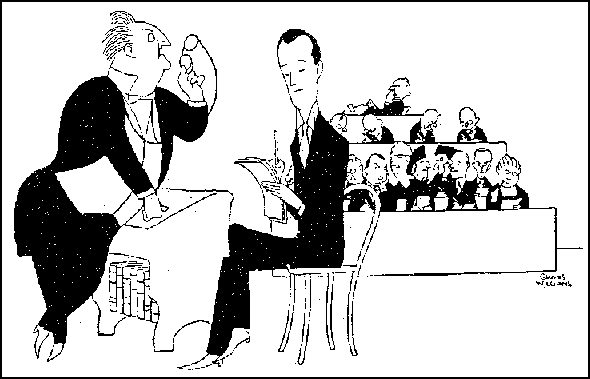
Raving, Unconfined Nut
©1993, Simon & Schuster
Reading
Contemporary American
Poetry about School
Maggie Anderson,
David Hassler, Editors
(University of Iowa Press)
but feel like I'm in a dream he's having.
a ship at anchor off the island he is
that dispenses words like boats to his shore.
He knows better than to talk.
I want your long blonde beauty
to be taught in high school,
so kids will learn that God
lives like music in the skin
and sounds like a sunshine harpsichord.
I want high school report cards
to look like this:
A
A
A
A
A+!
Review
A Photographic History
David Boyle
(MetroBooks)
review
The Effects of Head Wounds
On Foot Soldiers,
A Case Study
Ronald Wallace
(University of Pennsylvania)
to determine the effects of head wounds on foot soldiers. The cats
are strapped to special tables, their heads in a vise,
and shot with military assault rifles. The effects
are noticeable. Without their heads, the cats become dis-
oriented, have trouble breathing, and no longer function fully as cats. The government scientists speculate
that head-wounded foot soldiers experience similar discomfort.
They lose their appetites and often become depressed,
reflecting post-traumatic stress syndrome as well.
The lecturer stops. The congressmen are incredulous,
shake their collective heads. War is hell! They'll
approve the development of better headgear for foot soldiers.
reading
The Unauthorized
Biography
Vickie L. Bane
(St Martins)
review
Romanism,
& Rebellion
The Making of
A President, 1884
Mark Wahlgren Summers
(University of North Carolina)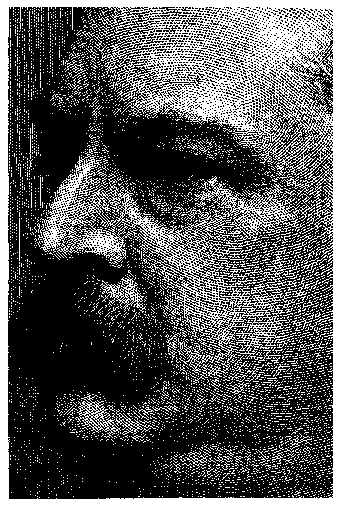
review
Of Art
Interviews with
Poets and Writers
Robert Philips
(Syracuse University Press)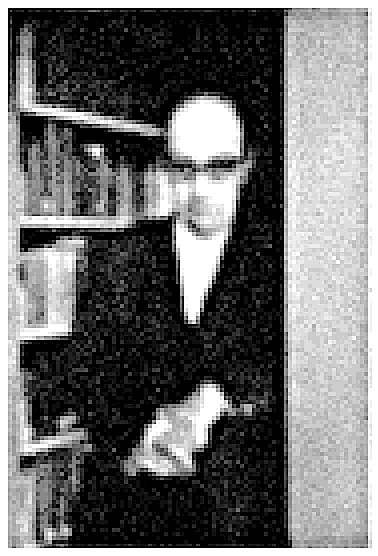
 If you want to be driven mad (or, still, after all this time, have that fake romantic notion about "The Madness of Art"), I suppose this would be your book. All it proves to me is that Joyce Carol Oates in live interview is just as arrogant and unseeing as the characters in those low-life novels she churns out like hot dogs, she being the Oscar Mayer of what's left of American literature.
If you want to be driven mad (or, still, after all this time, have that fake romantic notion about "The Madness of Art"), I suppose this would be your book. All it proves to me is that Joyce Carol Oates in live interview is just as arrogant and unseeing as the characters in those low-life novels she churns out like hot dogs, she being the Oscar Mayer of what's left of American literature.
review
A River Through
My Deams
Nasdijj
(Mariner)
review
Before the Government's
Committee on the Proposed
Development
Reading
The Snow
Jim Oliver
(Alyson)He lay on his side of their bed in the dark...He felt sorry for himself. He felt offended. He was a doctor. His days were used up by the needs of others. He was at the beck and call of people with scheduled needs and with needs for him which happened suddenly....He could not live the predictable life of a normal person. When he was needed, he was needed....
review
Waiters
Wait? (Hee hee)
James Joyce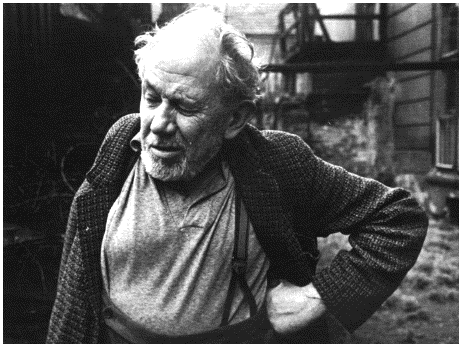
reading
Nairobi Trio
A Memoir
Jim Knipfel
(Berkley Books)
review
Literary Hollywood When
The West Was Fun
Samuel Marx
(Franklin Watts)
review
Victorian Murder
The Fatal Bullet
Rick Geary
(Nantier Beall/
Minoustchine)
review
But Baby Scabies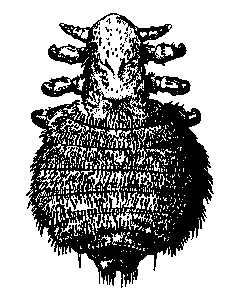
article
A Novel
Ha Jin
(Pantheon)